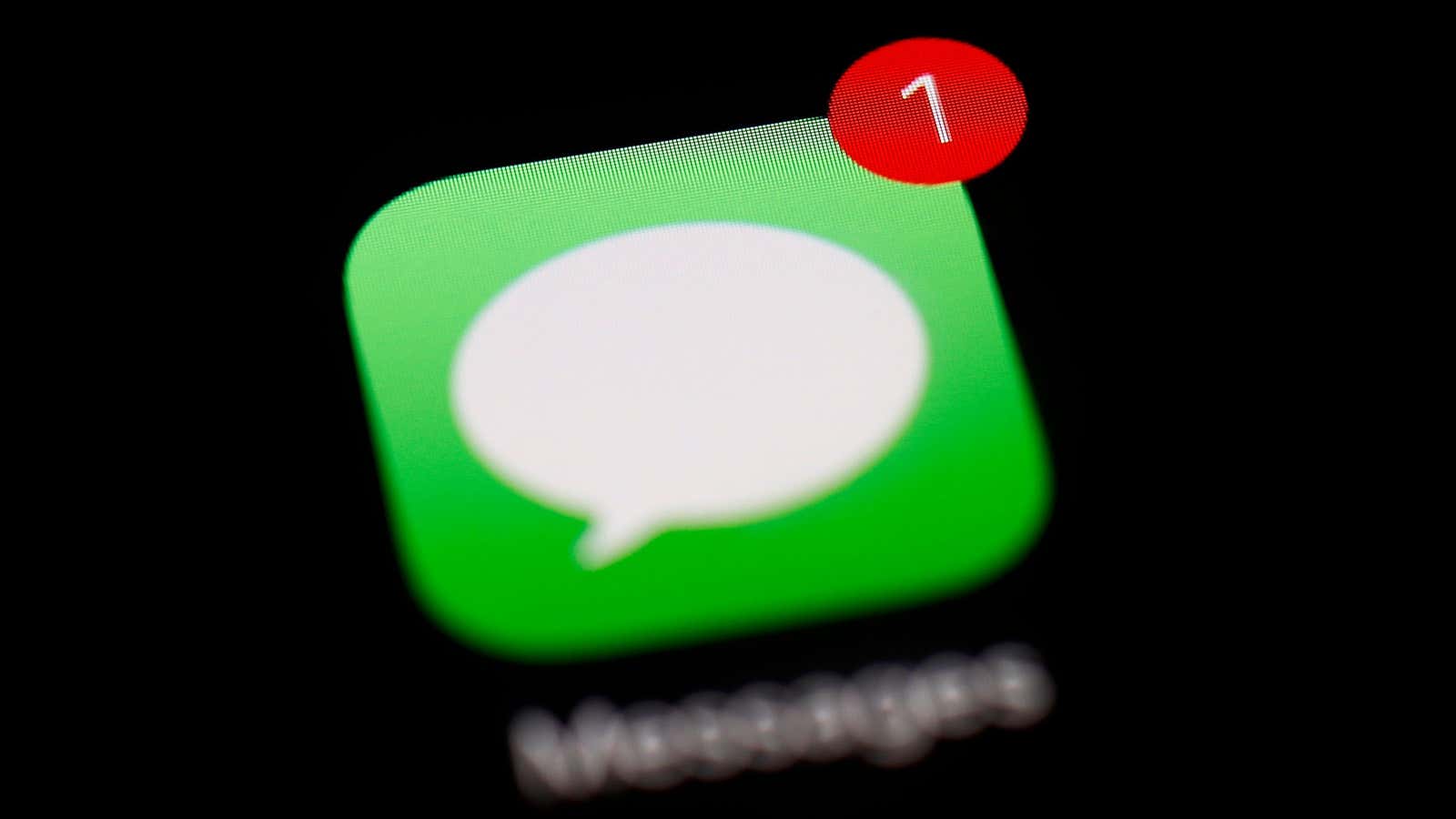Enabling notifications is essentially giving other people permission to schedule blocks of time in your day. Specifically, in 23-minute chunks.
Researchers have found (pdf) that it takes, on average, 23 minutes and 15 seconds to get back to the task at hand after a distraction. And notifications are serial offenders. Though originally introduced by Blackberry as a way to keep you off your phone (no need to keep checking email when a simple alert could tell you when a new message had arrived), notifications often have the opposite effect, drawing us deeper into the smartphone vortex.
So why do we still enable notifications?
For most of us, notifications are a hedge against a fear of missing out. A digital nudge seems like a small price to pay to stay informed and avoid FOMO.
At work, the stakes are even higher. It’s one thing to get a notification that you’ve been tagged in a photo on Facebook, and another to find out if you’ve gotten an email from your boss, right?
But whether you’re at work, home, or anywhere else, periodic pings about the recent past can be the enemy of staying in the present.
That’s why Mathilde Collin, co-founder and CEO of the workplace communications app Front, experimented with turning off her notifications. She liked it so much, she asked the rest of her staff to do the same.
“I’m convinced it’s better for the world [to disable all your notifications],” Collin says. “I’m a big believer in not being distracted when you’re doing other things. Limiting notifications helps maintain my mental health. “
Despite the CEO’s encouragement, only 35% of Front’s 100-person team felt comfortable turning off all of their notifications. But among those who tried out the boss’s no-notifications experiment, 80% reported that they did not miss anything important, and 70% plan to continue limiting their notifications in the future.
Collin is trying to turn her crusade against notifications into a movement. She tells Quartz at Work that she personally convinced Reddit co-founder Alexis Ohanian and Andreessen Horowitz partner Andrew Chen to disable their notifications. And now, Collin has launched a social media campaign (#NoNotifications) to get other tech leaders to follow suit.
At the end of the day, notifications exploit our curiosity to get us to pick up our devices—even when it’s against our better judgment. Disabling them is another step toward getting technology working for you, rather than the other way around.
